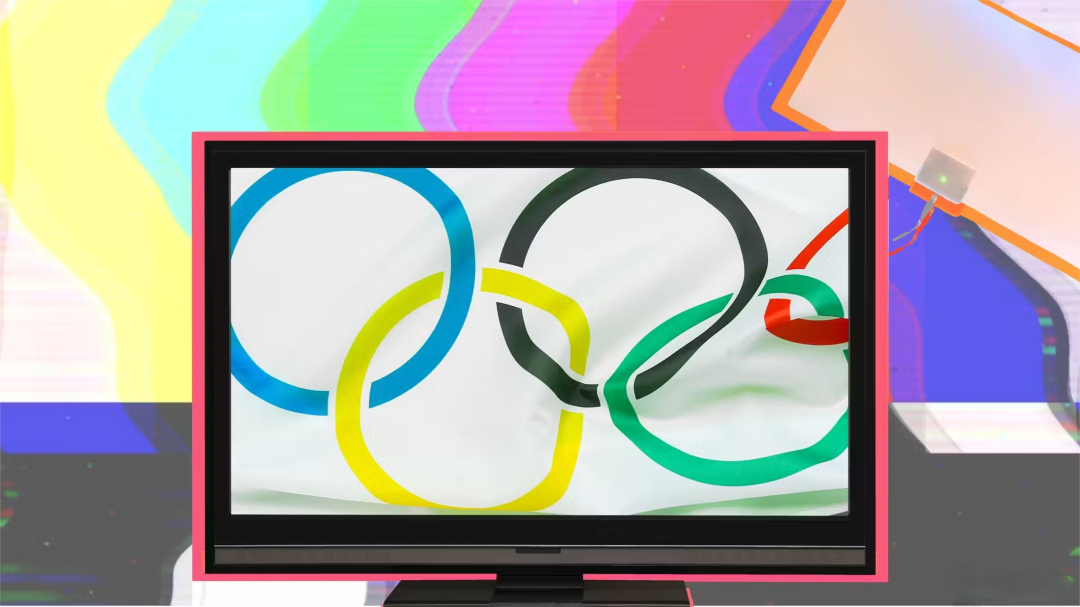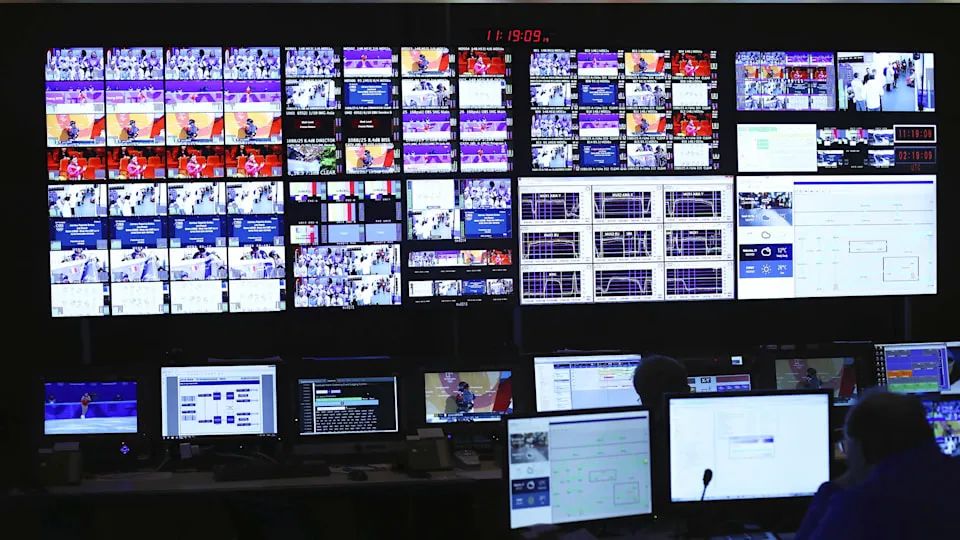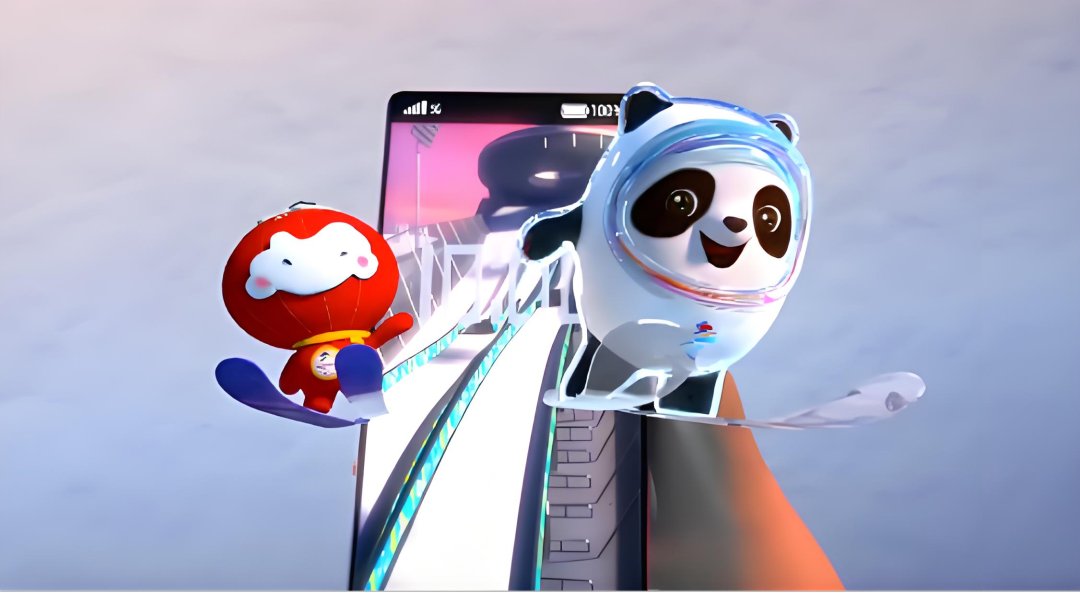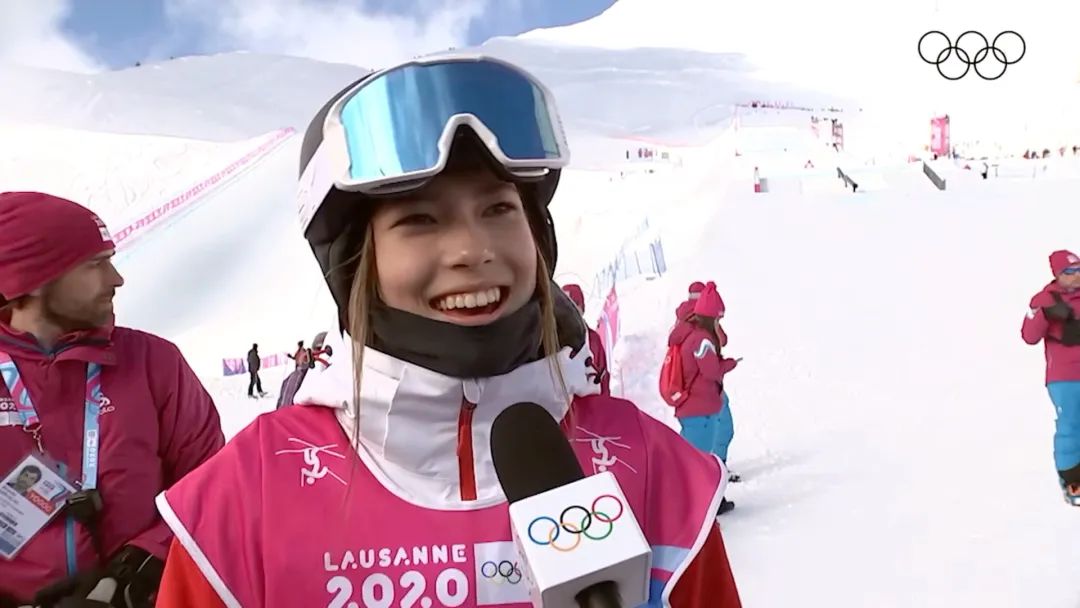Looking at the Prosperity and Bubbles of Top IP Commercialization through the Battle for the Broadcasting Rights of the 2024 Paris Olympics!
![]() 07/19 2024
07/19 2024
![]() 664
664

Amidst sky-high copyright fees, the restlessness and embarrassment of broadcasters for the 2024 Olympics in the traffic feast. Author | Luo Sheng Editor | Chong Lou
With the upcoming 2024 Paris Olympics, the competition for broadcasting rights has fully "ignited." According to media reports, Tencent, Douyin, Kuaishou, and Migu Video, backed by China Mobile, have successively become authorized broadcasters of the Olympics. Notably, Douyin has entered the Olympics for the first time, and apart from CCTV, the platforms participating in live and on-demand broadcasts of Olympic events this year happen to have a 50-50 split between long and short videos.
The eagerness of China's leading video platforms for Olympic broadcasting rights clearly demonstrates how fierce the competition for broadcasting rights has become this year. Behind this lies a battle for the commercial value of the Olympics. Moreover, as the Olympics have garnered increasing attention over the decades, the competition for broadcasting rights has intensified.
Undeniably, as a top global IP, the Olympics possess immense commercial value, akin to a "gold mine." However, amidst this prosperity, not all players who enter the fray can reap the benefits. This is evident from the fact that some broadcasters have garnered significant traffic from top events like the Olympics in recent years but achieved little in terms of actual commercial benefits.
01 What is at stake in the battle for Olympic broadcasting rights?
Observations suggest that the competition for Olympic content copyright is intensifying for two main reasons. Firstly, top sports events cover a wide range of user groups, boosting video platforms' core operational metrics such as user acquisition and activity. Secondly, Olympic events, as hot topics, provide material for users' secondary creation and dissemination, enriching platforms with high-quality content and enhancing user "stickiness." These positive impacts stem from the enormous commercial value of Olympic content.

Firstly, the commercial value brought by advertising sponsorships is a key battleground for broadcasters. Data from previous Summer and Winter Olympics proves that the Olympics are a global top IP with immense appeal, and related content naturally generates significant traffic.
In today's era of "attention economy," whoever controls the traffic controls the market. Therefore, with the quadrennial Olympics approaching, leading internet platforms compete fiercely to tap into its potential.
Taking the digital interactions during the 2022 Winter Olympics as an example, incomplete statistics show that the total playback volume of TikTok's topic tags related to the Beijing Winter Olympics, including #OlympicSpirit, has exceeded 6 billion times. Historical data indicates that Summer Olympics receive even higher attention than Winter Olympics. Thus, the 2024 Paris Olympics is bound to attract more attention and generate greater traffic influence than the 2022 Winter Olympics.
It is well-known that the Olympics brings immense traffic, which, even without other commercial monetization models, can generate significant commercial advertising value for hosts and broadcasters. Therefore, not only can hosts "rake it in," but broadcasters can also "profit from it."
Taking the 2020 Tokyo Olympics as an example, the sponsorship revenue generated by the Games exceeded $3.1 billion, almost triple that of previous Summer Olympics. Besides basic advertising sponsorship revenue, Japan, as the host, also generated approximately $4 billion in television broadcasting revenue. However, the International Olympic Committee and the host typically split broadcasting revenue 50-50, with the IOC taking 51%.
While broadcasters' revenues from Olympic broadcasting have not been officially disclosed, Tencent, which holds the broadcasting rights to numerous international top events like the NBA, Premier League, Chinese Football Association Super League, Formula 1, NCAA, NFL, and MLB, demonstrates the impressive contribution of international events to broadcasters.
For instance, media reports in 2019 estimated that Tencent Sports generated around RMB 260 million in membership revenue, with NBA annual advertising revenue approximately RMB 600-700 million, contributing to an annual revenue of around RMB 1 billion for Tencent from the NBA. Considering the NBA's influence pales in comparison to the Olympics, it is evident how much Tencent, Kuaishou, Douyin, Migu, and other 2024 Paris Olympics broadcasters stand to gain.
Secondly, companies that obtain broadcasting rights can further expand their commercial space by leveraging Olympic-related products and services. Typical examples include the exploitation of commercial value from various Olympic-related cultural and creative products like medals, badges, mascots, and Olympic-themed mobile games.
For instance, in 2020,Nuverse secured the exclusive agency rights in mainland China for the official mobile game of the Tokyo Olympics, "Sonic at the Olympic Games Tokyo 2020." Due to the Olympics' one-year delay, the game topped the iOS free charts on July 12, 2021, before the Olympics even opened, and remained at the forefront for an extended period.
During the 2022 Winter Olympics, Bing Dwen Dwen became a phenomenal Olympic mascot, generating immense traffic and commercial value for related brands and merchants. Media reports stated that on February 20, the day of the Beijing Winter Olympics closing ceremony, the official online store achieved sales revenue of RMB 266 million in a single day. Offline merchandise retail sales during the Games increased tenfold compared to the previous year, while online sales increased 450-fold.

Evidently, Olympic mascots not only generate revenue for merchants through sales but also drive significant traffic and sales for peripheral products. The hundreds of millions of sales generated by Bing Dwen Dwen underscore the immense commercial value of Olympic mascots and other derivative IPs.
Therefore, the battle for Olympic content broadcasting rights is essentially a competition for the traffic and commercial value of the Olympic IP itself and its derivative IPs. Beyond this, e-commerce models related to sports peripherals also bring additional commercial value to broadcasters, potentially contributing to user growth and paid conversions for emerging platforms in the long run.
02 From Olympic IP to Athlete IP Value Exploitation
At the 2022 Beijing Winter Olympics, Gu Ailing became a global superstar, reaffirming the immense value of transitioning from Olympic IP to individual athlete IP. In the past, athletes became well-known after winning Olympic gold medals, multiplying their commercial value.
In recent years, athletes' personal IP brand value has increased significantly due to the promotion by various internet and short video platforms, enhancing their brand influence and commercial value. This value is being deeply exploited by platforms and merchants.
For instance, the 2022 Winter Olympics, which previously received limited attention in China, gained unprecedented exposure thanks to short video platforms. The Games produced sports stars like Gu Ailing, Gao Tingyu, Xu Mengtao, Su Yiming, and Wu Dajing. Beyond the Winter Olympics, past Summer Olympics have also produced household names like Li Ning, Liu Xiang, Quan Hongchan, and Su Bingtian.

How significant is the commercial value of sports stars? Take the recently famous Gu Ailing as an example. Media reports stated that after winning gold at the Winter Olympics, Gu Ailing's endorsement fees rose to over RMB 10 million per brand, with over 20 brands endorsed, totaling over RMB 200 million. Quan Hongchan, who won gold at 15, secured her first endorsement contract worth RMB 10 million. As the "Diving Queen," Quan Hongchan's future potential is immense.
When Olympic champions become internet celebrities in the sports arena, some merchants also reap substantial profits by inviting them as brand ambassadors, further attracting more platforms and merchants to participate in Olympic broadcasting and athlete endorsement activities, fueling competition.
For instance, in 1999, Anta took the lead by spending RMB 800,000 to invite Kong Linghui as a brand ambassador. Subsequently, Anta's sports shoes held the top market share in China for five consecutive years, rapidly becoming China's leading sports brand. Recently, Liuhe Walnuts invited world champion Xu Xin as a brand ambassador, drawing industry attention. Besides boosting brand awareness and influence, Olympic champions can also drive stock price surges for endorsed companies, increasing their market value.
For instance, on the day Gu Ailing's gold medal win was announced, some companies she endorsed saw their stock prices surge to the daily limit. Shares of China Mobile, PICC, Mengniu Dairy, and Anta Sports also saw significant gains. Even stocks that had been in a downward trend stopped falling and began to rebound.
At the 2021 Tokyo Olympics, although Douyin did not directly obtain broadcasting rights, it did not abandon the Olympic traffic bonanza. At that time, Douyin created a #Victory2021# theme page and launched an Olympic athlete ranking. Within just a few days, over 100 athletes had signed up on the Douyin platform, showcasing the star power of Olympic champions.
03 Behind the Battle for Olympic Broadcasting Rights: Prosperity Coexists with Bubbles
While the Olympics generate immense traffic, it is a delicate balance between traffic and monetization. Facts show that due to the cyclical nature of the Olympics, this traffic is often unsustainable, limiting the value broadcasters and sponsors can derive.
Meanwhile, the Olympics, held every four years, are truly "scarce resources," leading to sky-high copyright prices. Consequently, major short video platforms have paid hefty prices to compete for broadcasting rights to top events.
For instance, public reports stated that the copyright fee for the 2016 Rio Olympics reached RMB 100 million. In the same year, PP Sports paid a staggering US$721 million for exclusive full-media broadcast rights to the Premier League from 2019-2022, setting a record for overseas copyright fees. In 2019, Tencent spent US$1.5 billion on the digital media rights to the NBA in China from 2020-2025. For the 2022 Qatar World Cup, it was rumored that Migu and Douyin spent over RMB 1 billion on broadcasting rights.

However, high costs do not necessarily translate into substantial returns. The most direct manifestation is that Olympic traffic is difficult to sustain. Take Migu Video's data during the Tokyo Olympics in 2021 as an example.
Statistics from Analysys show that in July 2021, Migu Video's monthly active users reached 36 million, a 14.55% increase from the previous month. However, after the Olympics, Migu Video's user base fell back to 25 million, a decrease of 32.28%. In 2022, Migu was also a broadcaster for the Beijing Winter Olympics, but this dilemma recurred.
To achieve widespread dissemination of Olympic events, the International Olympic Committee established OBS (Olympic Broadcasting Services) as the main broadcaster, responsible for producing and distributing Olympic television and radio coverage.
Under OBS, there are authorized broadcasting organizations. In 2014, China Media Group became an authorized broadcaster for the International Olympic Committee from 2018-2024. This means that major short video platforms are authorized broadcasting organizations under the authorization of CCTV.
However, as most sports event copyright monetization relies on copyright distribution and advertising revenue, the ideal model for broadcasters – using the Olympics to boost new user acquisition, old user activity, and generate sustained revenue through user payments – has yet to be proven successful and is difficult to become the primary means of monetization. Therefore, looking solely at copyright investment and corresponding output, perhaps most broadcasters are operating at a loss.
Precisely because Olympic traffic is difficult to sustain and commercial returns fall short of expectations, major short video platforms are broadening their commercialization paths to cover the costs of obtaining broadcasting rights.
Taking Kuaishou, which has repeatedly become an Olympic broadcaster, as an example, Southern Metropolis Daily reported that during the Tokyo Olympics, the number of users purchasing goods on Kuaishou increased by 63.2% year-on-year, with GMV up 88%. During the Beijing Winter Olympics, apparel, footwear, beauty and personal care, food and beverages became the top-consuming categories, with sports and outdoor category GMV surging 602% year-on-year.
Following Kuaishou's monetization path, "sports + e-commerce" satisfies users' one-stop shopping needs by identifying high-quality content and pre-embedding products, allowing users to watch and buy simultaneously. "Sports + local" can promote user consumption and immediate service access through online-to-offline integration. On the positive side, Kuaishou's competition for broadcasting rights may have benefited from its past successes in this field.
However, for broadcasters that have not disclosed much about their Olympic copyright acquisitions, the specific situation may be well-known to these players. For instance, during the 2022 Winter Olympics, experts estimated that Migu Sports had spent at least RMB 10 billion on sports event copyright purchases over the past four years.
However, despite its multiple Olympic broadcasts, Migu Video's user data growth has been "dismal," suggesting that even with China Mobile's backing, Migu Video has become a negative example for Olympic broadcasters struggling to achieve positive profits. As Migu Video's situation slightly improved during the Winter Olympics, an industry insider commented, "After eight years of 'sponging off' hundreds of billions, it finally made money back from the 2022 Winter Olympics."
This seemingly sarcastic social comment reflects that for some platforms, the seemingly ubiquitous battle for Olympic broadcasting rights may not just be an offensive battle to seize traffic and users but also a protracted defensive battle to prevent competitors from stealing traffic and users.
Conclusion
As a top global IP, the Olympics' influence and appeal are self-evident. However, due to its wide audience and differing user groups across platforms, it is difficult to establish a unified and replicable commercialization path.
For broadcasters participating in the 2024 Paris Olympics, it will be challenging to copy others' "homework." The challenge before these broadcasters will be how to innovate their models and recoup the sky-high "bets" placed on obtaining broadcasting rights through appropriate operational means. However, this difficulty is evident, and the outcome of this competition remains uncertain. Let's wait and see.







